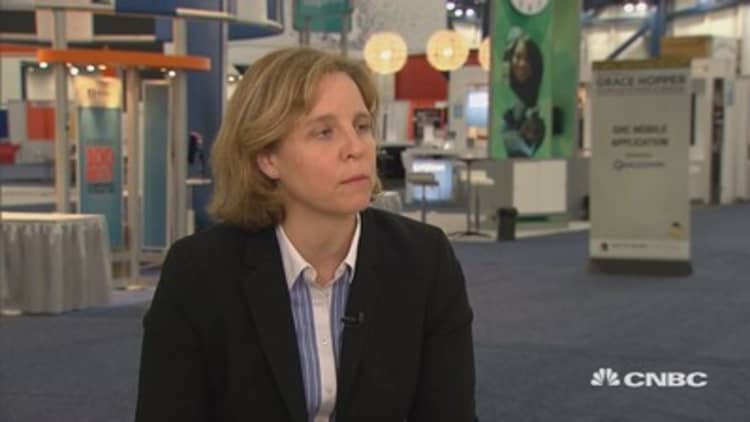As the gender pay gap remains stubbornly wide, YouTube's CEO has some tips for her fellow women in tech.
"Whether it's salary or a promotion or a job, I think it's important for women to ask for what they think they deserve," said Susan Wojcicki at the Grace Hopper Celebration of Women in Computing in Houston on Thursday.
Only by asking will women find out whether or not it is possible. She stressed how important it is for women to be their own advocates and not feel guilty about it. It's difficult for a colleague to be an advocate for others, if they are not their own advocates.
"As a manager it's noisy. If you have some people who are reminding you all the time about how they want that next job or promotion and you have other people who don't remind you, it's hard to keep those always at the same level. There's also a risk of being too focused on that. You have to do a great job too," she said during an in-person interview.
Today, full-time women employees earn 78 cents for every dollar men make.
Read More Shedding its racy past, GoDaddy issues tech challenge
Wojcicki's comments are in stark contrast to those from Microsoft CEO Satya Nadella at the same conference last year regarding what women should do if they are uncomfortable asking for a pay raise. He said women should have "faith that the system will actually give you the right raises as you go along" and those who don't ask for one have "good karma." After media backlash, Nadella .

In remarks before a packed audience of mostly women, Wojcicki also stressed the importance of getting more women in tech. Women make up just a quarter of computer and math occupations, according to data from the Bureau of Labor Statistics.
In part, misconceptions about computer science, including that it's boring and girls would not be good at it, are driving this gender imbalance in interest in the topic, she said.
"Unless we make computer science a priority, we risk making gender, class and racial disparities worse as jobs flow to those with a computer science background," Wojcicki said.


